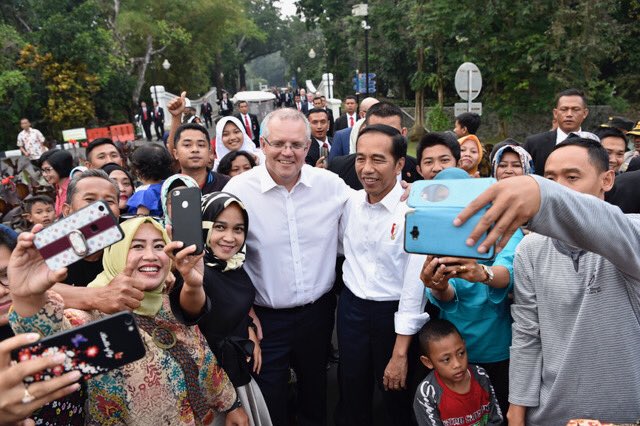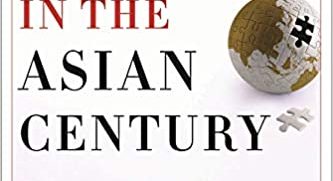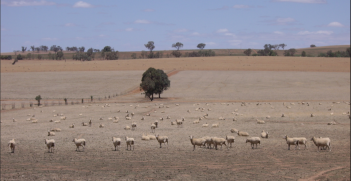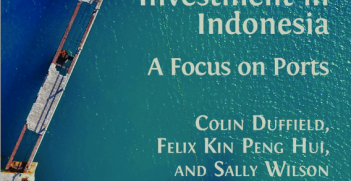Diplomatic Debacles Bode Ill for Australia’s Regional Relationships

Diplomatic missteps and muddled priorities threaten to undermine Australia’s efforts to diversify its security partnerships across Asia.
A healthy debate has been bubbling away in Australian foreign policy and defence circles over the growing need for a “Plan B”: a contingency plan in the event that the country’s to-date reliable alliance with the United States ceases to be so. These discussions have largely centred around changes Australia would need to make to its defence capacity, such as boosting defence spending and procuring certain capabilities, such as nuclear-powered submarines. Commentators have also called on Canberra to re-prioritise and diversify its strategic partnerships across Asia. My United States Studies Centre colleagues Ashley Townshend and Brendan Thomas-Noone have called for a wholesale redirection of Australian defence and diplomatic commitments away from the Middle East and back to the Indo-Pacific. AIIA life member Tony Milner has called for Australia to double down on diplomacy in Asia. Euan Graham put it most eloquently when he described creative diplomacy as Canberra’s “strategic multiplier” in Asia, pointing to the latent potential of Australia’s ties to Indonesia, India and several Southeast Asian states.
Unfortunately, Australia’s recent foreign policy activism seems to have done more harm than good to its Asia profile. Domestic political turmoil, muddled priorities and deference to US diplomatic prerogatives have all contributed to a number of foreign policy blunders and missed opportunities. Without a course correction, these trends will make it even more difficult for Australia to engage in the sort of “strategic promiscuity” championed by proponents of Plan B.
Leadership changes and stalled partnerships
The ousting of former Prime Minister Malcolm Turnbull in August handed Australia its seventh Prime Minister in 11 years, continuing a trend which Joshua Kurlantzick has argued “distracts Australian leaders from following through on their foreign policy goals.” Indeed, the leadership spill came at a key moment in Australia’s efforts to boost ties with emerging Southeast Asian partners. With new Prime Minister Scott Morrison in damage control, a September tour across Southeast Asia planned under Turnbull was significantly curtailed. Though Morrison chalked up an early victory in signing-off on a free trade agreement with Indonesia, Prime Ministerial visits to Malaysia, Thailand and Vietnam were all abandoned, stalling momentum gathered by the former Turnbull Government in strengthening Australia’s ties with ASEAN in defence, trade and diplomacy.
The timing of the cancelled visit to Hanoi was particularly disappointing, given the recent conclusion of an Australia-Vietnam strategic partnership in March. In fact, the pace of the growth in the Australia-Vietnam security relationship has been far outstripped by those between Vietnam and the other members of the Quadrilateral Security Dialogue (India, Japan and the US) of which Australia is also a member. For Australia to stall on further developing security ties with a seeming “fifth member” of the Quad does not support its efforts to demonstrate that its relationship with Vietnam is more than purely symbolic. Australia is already facing difficulties in securing India’s permission to participate in the annual trilateral Malabar naval exercises held between the Quad’s other three members. Together, these setbacks give the impression that Canberra is being left behind when it comes to strategic coordination between key regional partners in efforts to balance China. Nor does it contribute positively to Australia’s overall reputation as a reliable partner at a time when strategic diversification is the order of the day.
Alliance management versus regional relationships
Canberra’s muddled foreign policy priorities have jeopardised key regional relationships. While Morrison’s recent announcement that Australia was considering relocating its embassy in Israel from Tel Aviv to Jerusalem was met with applause from the Trump Administration, it also threatened to undermine bilateral relations with Indonesia. Morrison’s announcement was particularly poorly timed: on the same day, Indonesian Minister for Foreign Affairs Retno Marsudi happened to be hosting her Palestinian counterpart. Marsudi lodged an official complaint with the Australian Ambassador to Indonesia, but also sent a clear warning directly to Australian Minister for Foreign Affairs Marise Payne that the embassy move would “slap Indonesia’s face” and “affect bilateral relations.” Reports subsequently emerged that Jakarta was considering suspending the signing of the bilateral free trade agreement announced only weeks earlier. Indeed, it now appears certain that Jakarta will make any signing of the Australia-Indonesia free trade agreement at the ASEAN conference this week contingent upon a promise from the Morrison Government that the proposed embassy move will be abandoned.
Though it received far less media coverage, Australia-Malaysia ties were also put under strain by the announcement. The anointed successor to Malaysian Prime Minister Mahathir bin Mohamad, Anwar Ibrahim, expressed disappointment with Morrison’s proposal, imploring Canberra to reconsider for the sake of its relationships with ASEAN countries already strained by the aforementioned cancelled visits.
Many Australian commentators interpreted the Israel embassy announcement as a domestic political play, an attempt to influence the result of an impending by-election for the seat vacated by Malcolm Turnbull. Yet it could also be interpreted as an expression of support for the Trump Administration relatively early in Morrison’s tenure. Apart from the Jerusalem issue, the Morrison Government has also proposed revisiting Australia’s support for the Iran nuclear deal from which the US controversially withdrew in May. However, in openly supporting controversial US diplomatic prerogatives in the Middle East, Morrison has exhibited an insensitivity to the concerns of Australia’s more immediate neighbours, arguably undermining the very “national interest” which he has claimed the embassy move could augment. Whether the product of Asia illiteracy or alliance management (or both), such diplomatic behaviour threatens to damage Australia’s efforts to enhance key relationships with immediate neighbours in Southeast Asia. It undermines Australia’s credibility as a considered and responsible partner and spotlights Canberra’s muddled foreign policymaking, prioritisation and execution.
Bucking the stereotype of being the US’ “yes man” will be crucial if Australia is to pursue strategic diversification consistent with Plan B advocates. Indeed, any Plan B blueprint needs to acknowledge that in a post-American Asia, Washington’s endorsement may not carry the same impetus as it once did in Australian efforts to build partnerships with regional players. For instance, though Australia presently enjoys a comprehensive bilateral relationship and considerable diplomatic support from Japan, this partnership was developed largely within the context of the two states’ respective alliances with the US. Rather than relying on the recommendations of close friends and allies, Australia will need to ensure that its own regional diplomatic reputation is robust enough to reassure other states of its reliability and desirability as a diplomatic and strategic partner in its own right.
Unfortunately, the approach to regional diplomacy that Canberra has exhibited of late does not send a positive message. Missteps on sensitive issues and policy stasis on others, such as Australia’s Korea policy, do not bode well for the successful diversification of Australia’s strategic relationships across the region, at least in the near future. The development of strong bilateral ties does not occur overnight, but requires years of devotion and trust-building at the highest levels of government, particularly in Southeast Asia. With national elections scheduled for early 2019 and the prospect of another leadership change on the horizon, the near-term prospects for Australia’s diplomatic push into Asia are far from clear.
Tom Corben is a research assistant with the Foreign Policy, Defence and Strategy Department at the United States Studies Centre at the University of Sydney.
This article is published under a Creative Commons Licence and may be republished with attribution.





